Luana Lazzarone has spent nine years shaping her path in Turin’s specialty coffee scene. She manages the two locations of Orso Laboratorio Caffè, where she balances service with team leadership. Her focus on people, clarity, and daily consistency guides the way she runs each shop.
Luana brings strong technical skills to the bar, supported by graduating from SCA Professional courses. Her work in competitions has also marked key moments in her career. She recently placed 3rd in the Italian Brewers Cup, after earlier experiences in Latte Art. Competitions helped her understand what part of coffee felt most like home.
She carries this same clarity into her role as a trainer. She teaches new baristas to communicate with guests, build confidence, and create an easy, welcoming atmosphere. For Luana, good coffee starts with kindness and knowledge shared with intention.
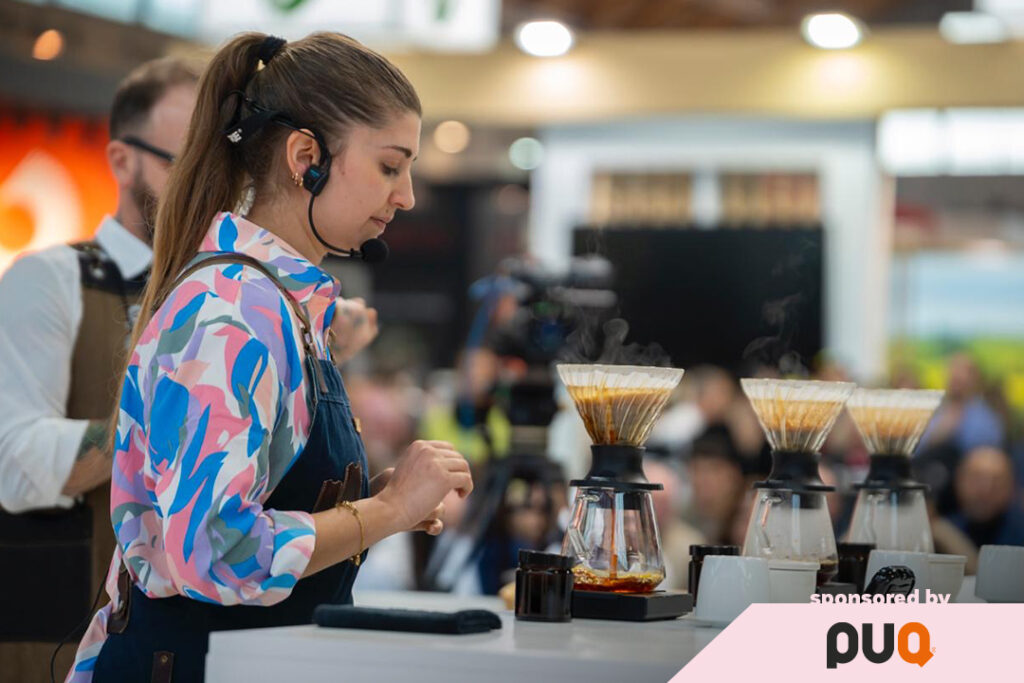
Luana, what is your first memory with coffee?
My grandparents owned a small shop where they sold coffee. That’s where my earliest memories were formed – full of emotion, especially because I lost both of them several years ago. Coffee has always been a part of my life.
What inspired you to pursue a career in the coffee industry, and how did you get started?
After finishing my studies in languages and literature, I started working with my family in our family business, so the transition into the coffee world felt very natural and spontaneous. Then, almost by chance, I attended a coffee course, and that’s where something clicked. I realised that coffee was my path, and that’s how everything began.
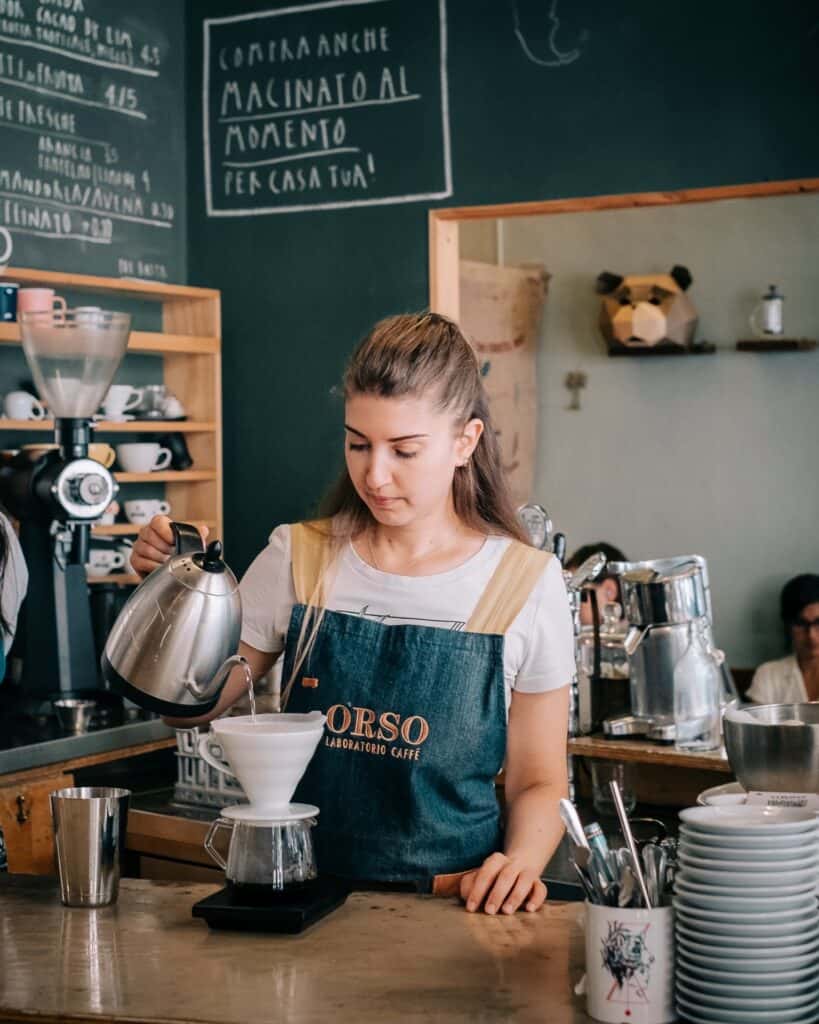
Tell us a bit about the place you work at. What is your role there?
After realising that I wanted to focus my career on coffee, I started working as a manager in a specialty coffee shop in my city called Orso Laboratorio Caffè. I now manage both locations, and I’m responsible for organisation and, most importantly, for the people. I pay a lot of attention to my team members — creating a safe and welcoming work environment is very important to me. It sometimes requires extra effort, but I do it with pleasure. I’m lucky to have a team of wonderful people, true professionals and passionate individuals. We all give 100% to highlight and celebrate coffee.
What kind of experience do you want your guests to have when they visit you at the cafe?
I like to speak in a simple and approachable way, keeping the technicalities for other contexts. Most guests just want to enjoy a good cup of coffee and feel comfortable. Those are my main pillars: good coffee and a warm, relaxed atmosphere.
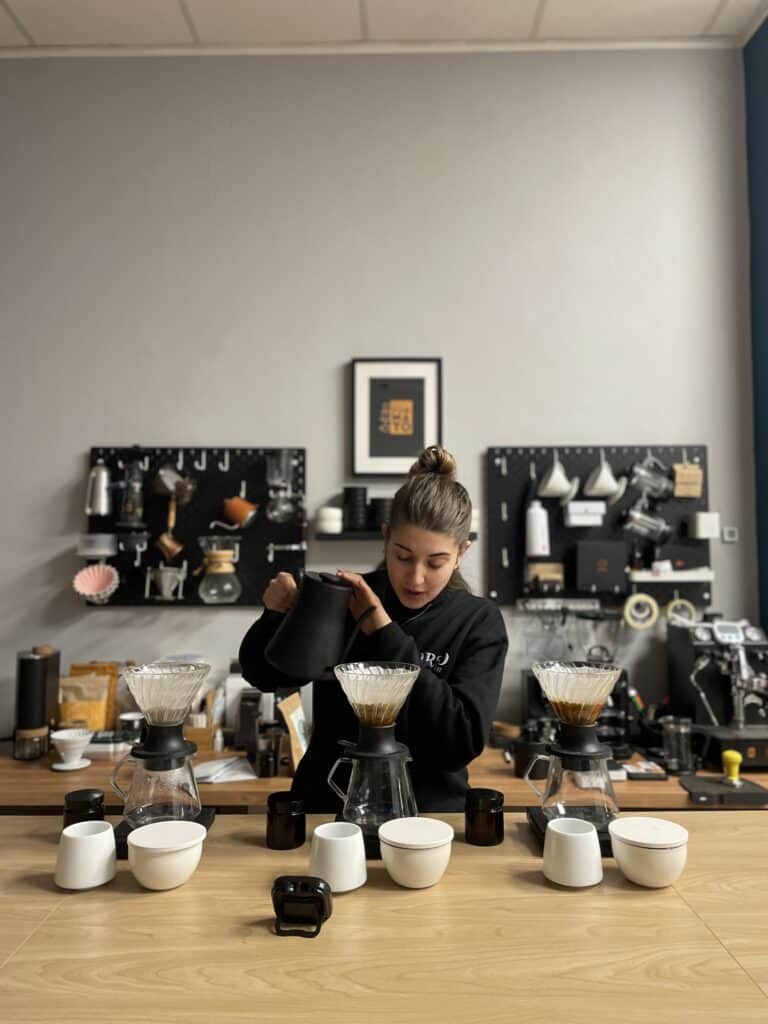
What is your favourite part of the day in your cafe, and why?
My favourite moment is in the morning. Being one of the first interactions in someone’s day gives me the chance to help set a positive tone and start their day off right.
How do you stay motivated and inspired to keep improving your coffee-making skills?
Competitions definitely play a key role for me. They allow me to meet many new people, to interact with experts from all over the world, and to study and taste incredible coffees. Being part of that environment keeps me motivated to keep learning and improving every day.
What are some common misconceptions about our industry that you’ve encountered, and how do you address them?
One common misconception is that specialty coffee is something complicated or exclusive. Some people think they need to understand all the technical details to appreciate it. I try to show that this isn’t the case – coffee can be simple, welcoming, and enjoyable for everyone. My approach is always to communicate in a friendly and accessible way, focusing on taste and experience rather than technical jargon.
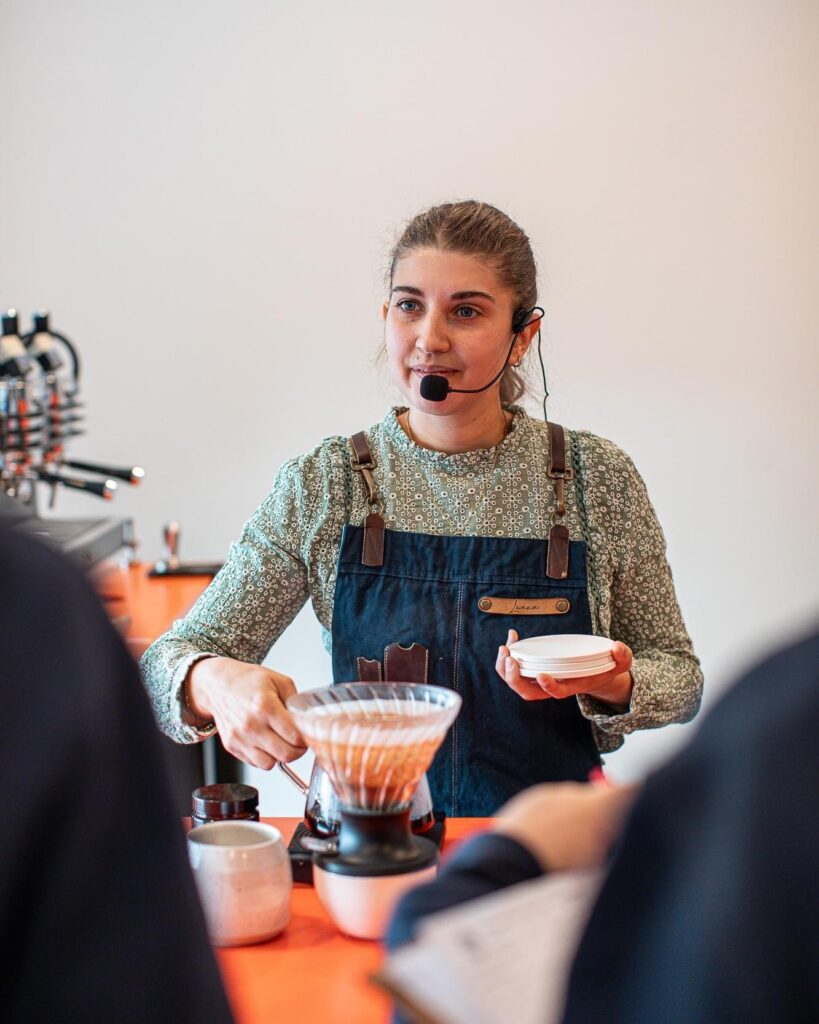
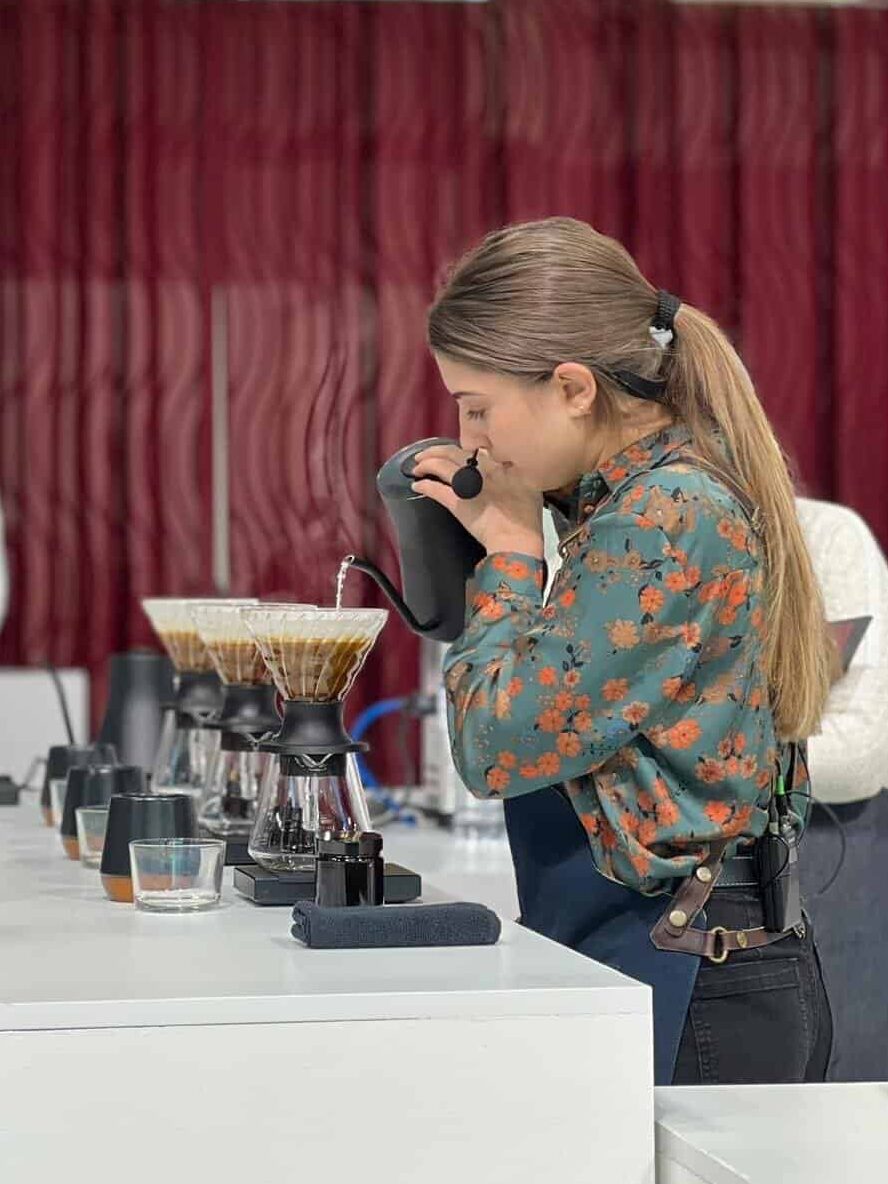
Can you tell us about a time when you had to train a new barista? How did you approach the training process, and what did you focus on?
When I train a new barista, the first thing I focus on is communication with customers. Technical skills can always be learned with time and practice, but kindness, empathy, and a welcoming attitude come first. I begin with theoretical training, because having the right knowledge allows us to communicate clearly and confidently with guests.
Then, step by step, we move into the practical side: starting with espresso, milk steaming and service behind the machine, and only afterwards, filter coffee. I try to lead by example — showing how to create a warm atmosphere, how to listen, and how to make people feel comfortable. Hospitality always remains at the centre of everything we do.
If there were one piece of knowledge about coffee you’d like everyone to know, what would that be?
I would like everyone to know how long and complex the journey of coffee is before it arrives in our cafés and in our homes. I always try to highlight this when someone who isn’t familiar with specialty coffee walks into the shop. In Italy, we often take coffee for granted, without thinking about the incredible amount of work behind it — especially at the farm level. Understanding this helps us appreciate coffee with much more respect.
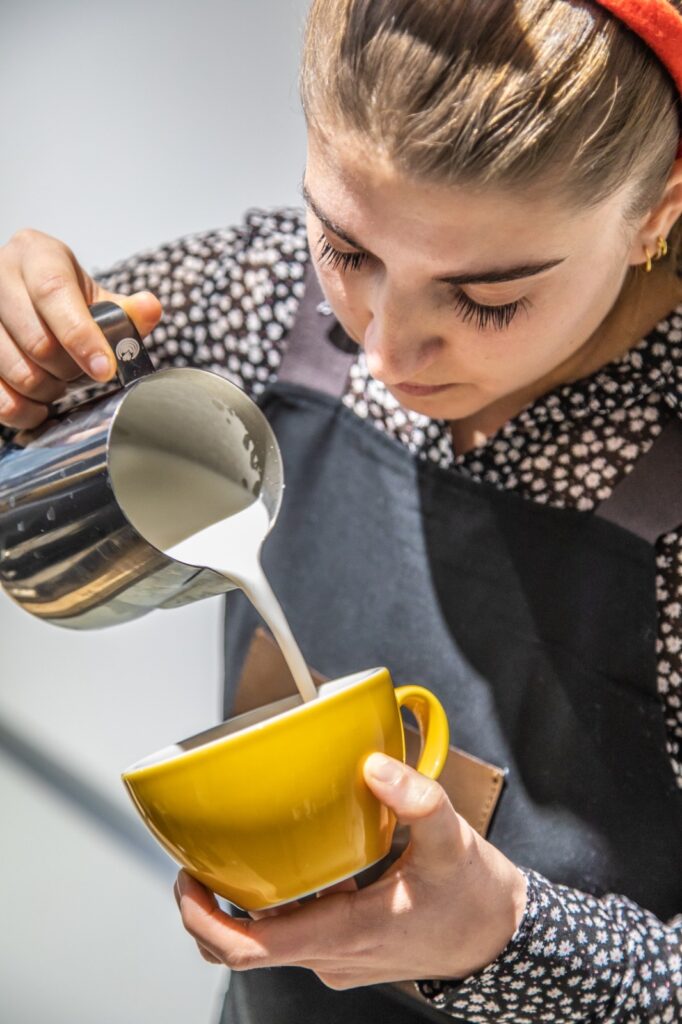
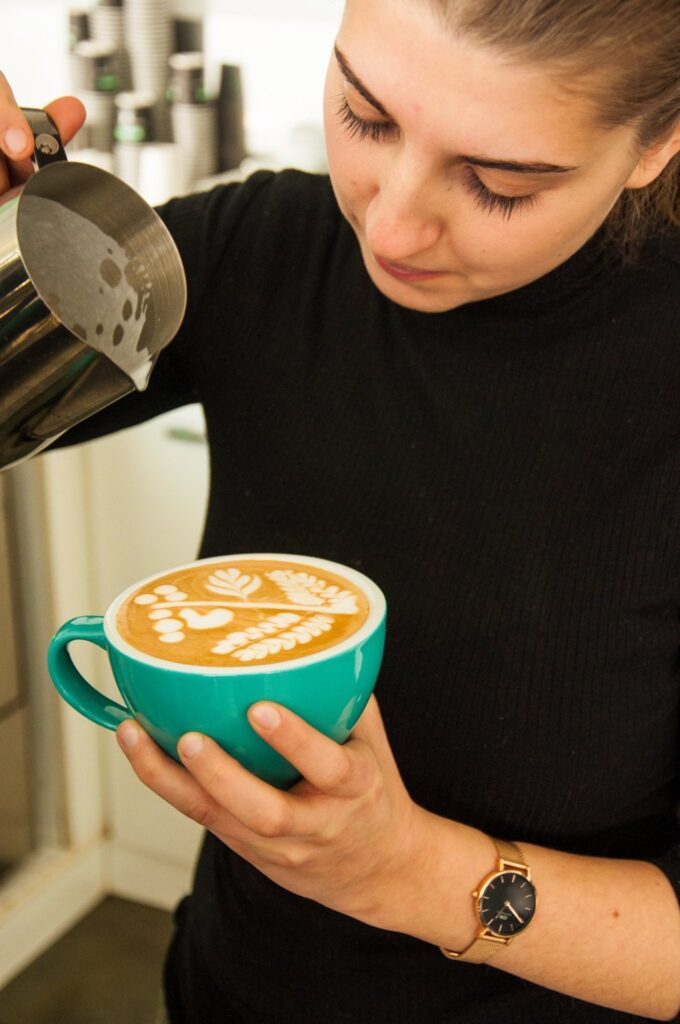
You have some amazing achievements in championships. Can you tell us more about them?
I started competing about five years ago in Latte Art, where I placed 4th in Italy. But with time, I realised that latte art wasn’t really my path. When I discovered filter coffee, something clicked – it felt like a real connection – so entering Brewers Cup a few years later was a very natural step for me. In the most recent championship, I placed third in Italy, which was a really meaningful result for me.
What are the next championships you’d like to compete in?
Actually – literally just a few hours ago – I competed in the regional Brewers Cup rounds, trying to qualify again for the Italian finals! So that’s definitely the championship I’m focused on at the moment. It’s exciting to keep challenging myself and see how far I can go.
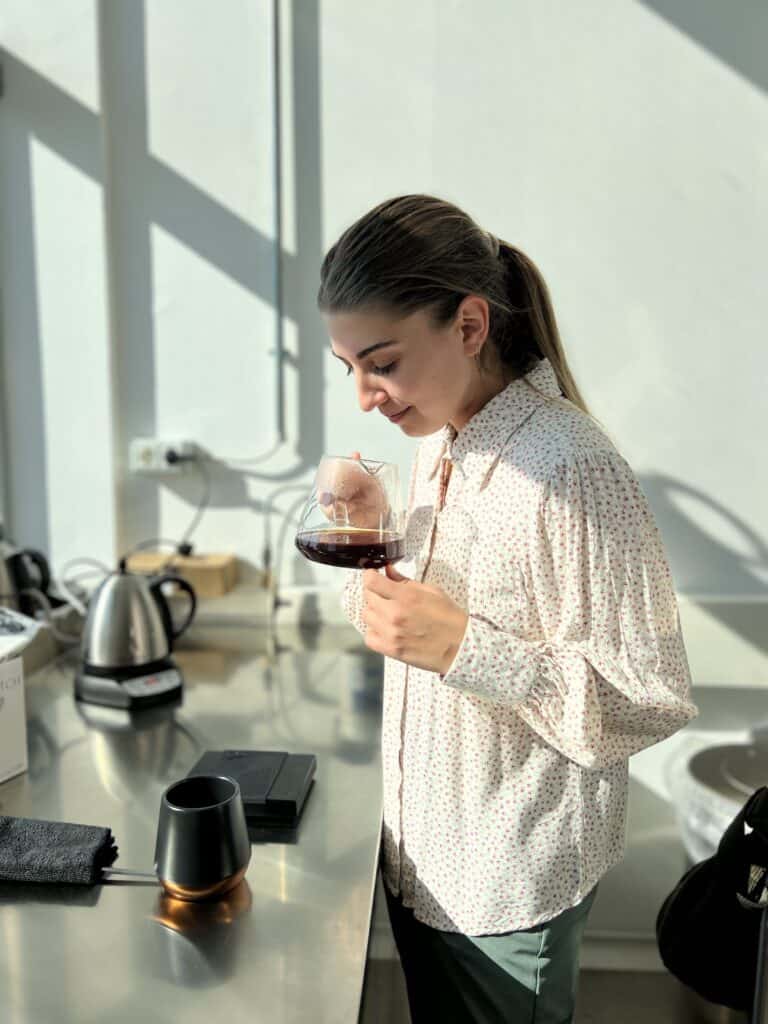
What, in your opinion, is the most important thing to have in mind when you start to compete in coffee championships?
I think the most important thing is not to focus on the final result, but on the journey. Competing allows you to challenge yourself and go beyond the limits we often create in our own minds. It’s a process of growth. Also, bringing something personal to the stage – something that truly represents you – is what makes it meaningful and rewarding.
What are your passions and hobbies apart from coffee?
I love reading. It relaxes me and allows me to travel through time and space. It’s my way of disconnecting and exploring different worlds.

Quick Fire Questions for Luana Lazzarone:
Filter coffee or espresso-based?
Filterrrrr <<3333
Milk coffee or black coffee?
Black.
The most underrated coffee drink?
Espresso tonic.
The most underrated coffee brewing device?
French Press.
Favourite piece of barista equipment?
Hario Switch.
How do you make coffee at home?
V60.
No.1 café in Europe that every coffee geek should visit?
Substance Cafè, Paris.
Favourite city outside your own for a coffee tour?
Florence, a lot of specialty and art in the same place!

